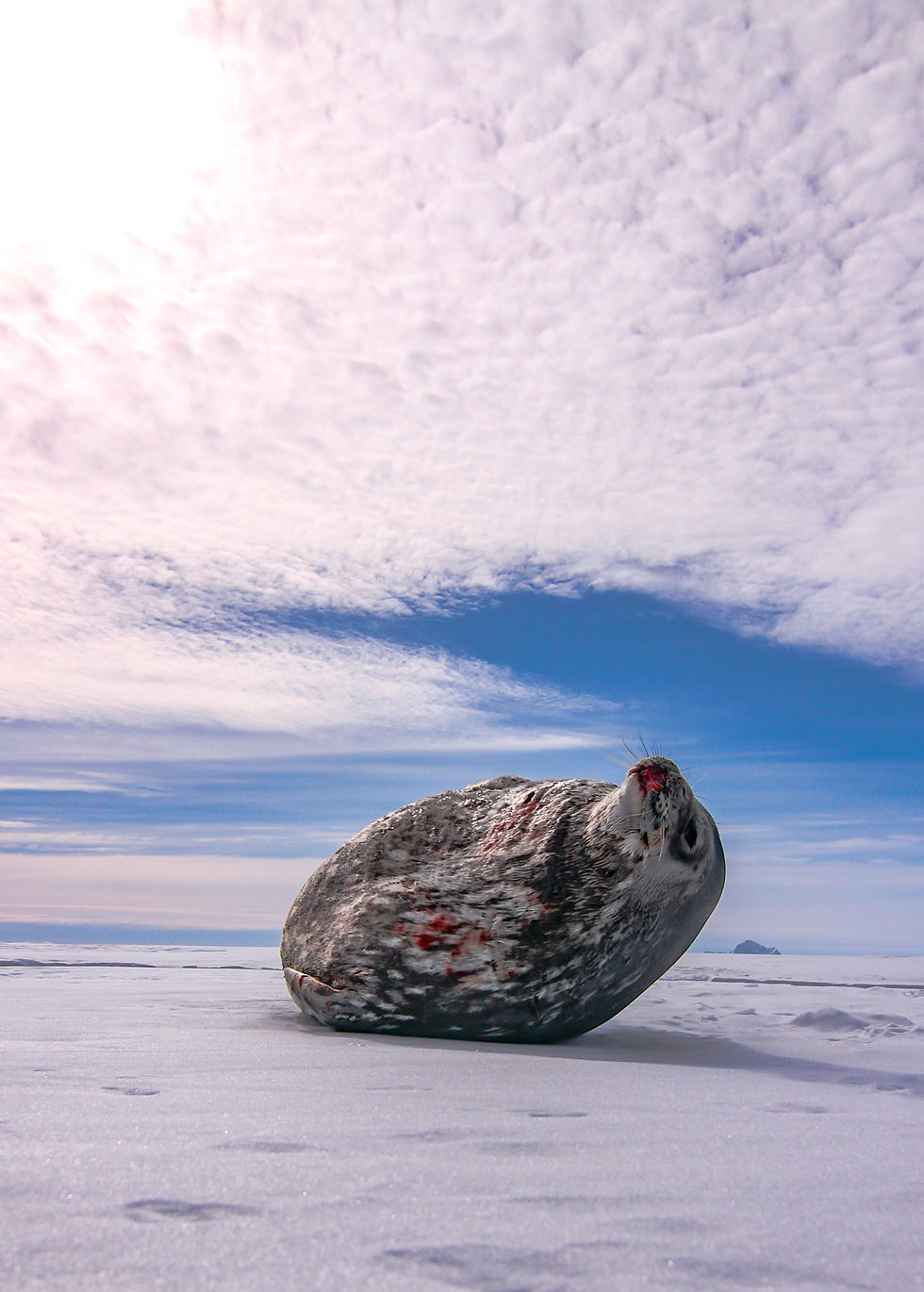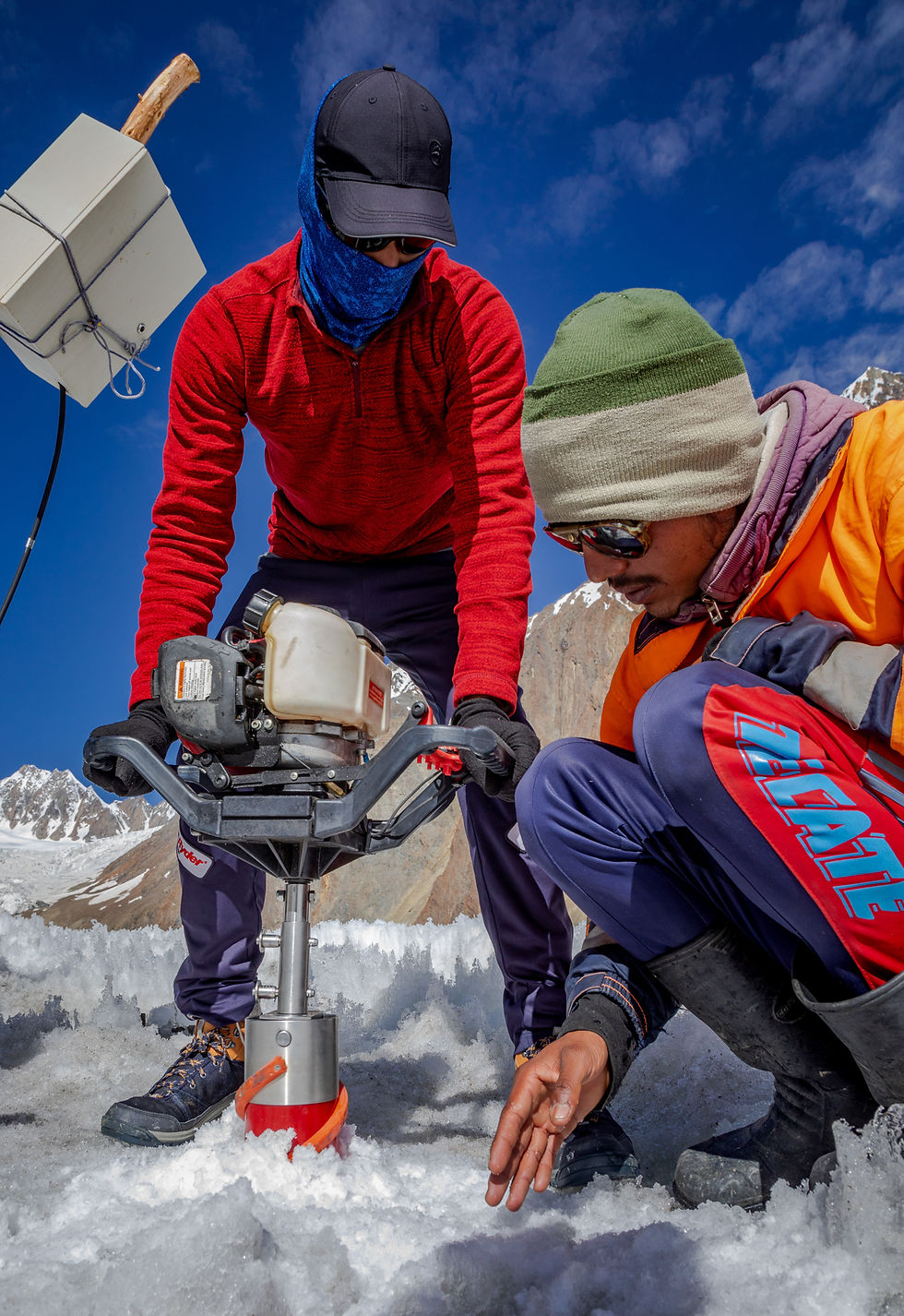Impact Photography & Filmmaking with Rakesh Rao
- Editorial Team

- Jan 26, 2021
- 4 min read
Updated: Jan 17, 2024

The dawn of the new decade brought with it a period of unprecedented global strife. The much-awaited 2020 was a year marked by fear, disease and global stillness, leaving a majority of the world in a state of turmoil. With the advent of a new year and a promising vaccine on the horizon, it’s time to look beyond ourselves, and at the disease that is ravaging our home, our very planet: Climate Change.
All around us, the world is changing at an alarming rate. Across the globe, waves threaten to swallow shores entirely, as sea-temperatures rise and once immovable ice sheets melt away into nothingness. The skies, once clear and shimmering with bright constellations, are now muddled with smog, impenetrable layers of haze and pollution that our eyes cannot overcome. Birds, animals, sea creatures and more choke on the refuse of our consumer-driven lifestyles, while we sit upon our metaphorical thrones, the alpha-species that tricked the system, and escaped the food chain. We thought ourselves invincible, but the year 2020 showed us how truly mistaken we were.
Climate Change, Consumption, & Disease
While highly contagious and fast-spreading illnesses the likes of Covid-19 may seem an unfortunate act of God, they are but another product of humanity’s indifference and apathy towards our planet’s ecological and biological health. Coronaviruses are common in certain species of animals, such as cattle and camels. Although the transmission of coronaviruses from animals to humans is rare, the highly infectious strain that arrested the global population is likely to have originated from bats or pangolins. Humanity has enslaved such species either for consumption in the form of meat products or as fodder for our insatiable need for products made from exotic animal pelts and more. Housed in inhumane, unsanitary conditions, and in close proximity with one another, diseases like coronaviruses have more opportunity to mutate and spread, even evolving enough to skip from one species to the other, as in the case of Covid-19. The highest reported cases of Covid-19 around the world are in direct correlation to areas with the highest rates of pollution. We are diluting the microbial health of our lungs with the disease of our industries, making us more vulnerable to diseases the likes of Covid-19.

While human-accentuated climate and ecological issues are indeed affecting our environment and natural ecosystems, it’s important to remember that they are also, in turn, killing us. If not for the sake of the planet we call our home, humanity must unite in their efforts to preserve our own selves from a future rife with dire consequences for us all.
Spreading Awareness
Creating awareness about climate change, its causes and its subsequent effects is the need of the hour, and one effective medium of doing this is through visual communication mediums, the likes of photography and filmmaking. Films and photographs have the ability to engage us both emotionally as well as socially, by communicating large-scale ideas in literal, and visual terms that stimulate our senses of perception. By incorporating climate change and other relevant themes into films and visual art forms, there is potential for the creation of a new dimension to the spread of scientific ideas, by sparkling citizen interest and simultaneously inspiring audiences to further engage in broader discussions on the issue itself.

Citizen science & public participation in scientific research is a vital tool to engage all segments of society, while also furthering the cause of developing research data and analysis of climate patterns and impact.
The Impact Photography & Filmmaking Virtual Bootcamp
At The Impact Society, we aim to foster a cohesive community of responsible, forward-thinking creators, with Climate Awareness being the focal point of our initiatives. As part of our ongoing dialogue with our community, we have curated a virtual workshop designed to inspire and uplift filmmakers and photographers to efficiently communicate issues of climate change, and its associated scientific research initiatives through their respective art forms.

The Impact Photography & Filmmaking Virtual Bootcamp will be mentored by award-winning science filmmaker Rakesh Rao, a man on a mission to make scientific research more accessible to the general population. A photographer, filmmaker and science enthusiast specializing in documenting scientific expeditions and research activities, Rakesh has been involved in several projects, with his work taking him to the three Cryospheric polar regions of our planet (the Arctic, Antarctic and the Himalayas) making him amongst the few documentary filmmakers to do so. His recent film The Climate Challenge won the Best Science Film award at the International Science Film Festival of India.

His work has been published in the book 90 Degrees South and several of his photographs have been a part of international photo exhibitions, including the Sur polar IV held in Argentina in 2012, and the Scientific Committee on Antarctic Research (SCAR) open science congress meeting held in Portland, USA. He has contributed for several newspapers, digital publications, and magazines including National Geographic Travelers India, Sky and Telescope and several others. His work has been featured in several magazines, including Smart Photography, Goa Today, Timeline Goa and a number of online platforms the likes of The Better India and TheVibe.

Apart from his documentation work, he is also actively involved in promoting and communicating scientific initiatives through filmmaking & photography in schools, colleges and other public forums across the country.
The Impact Photography & Filmmaking Virtual Bootcamp will take place in February 2021. If you are a creator looking to craft positive narratives of change, while creating an impact on our society by inspiring and shifting mindsets, we encourage you to apply to be a part of our course.
Registrations are limited, so be sure to put in your applications soon!




Comments